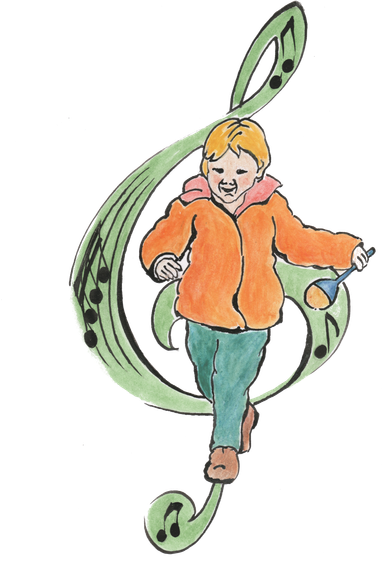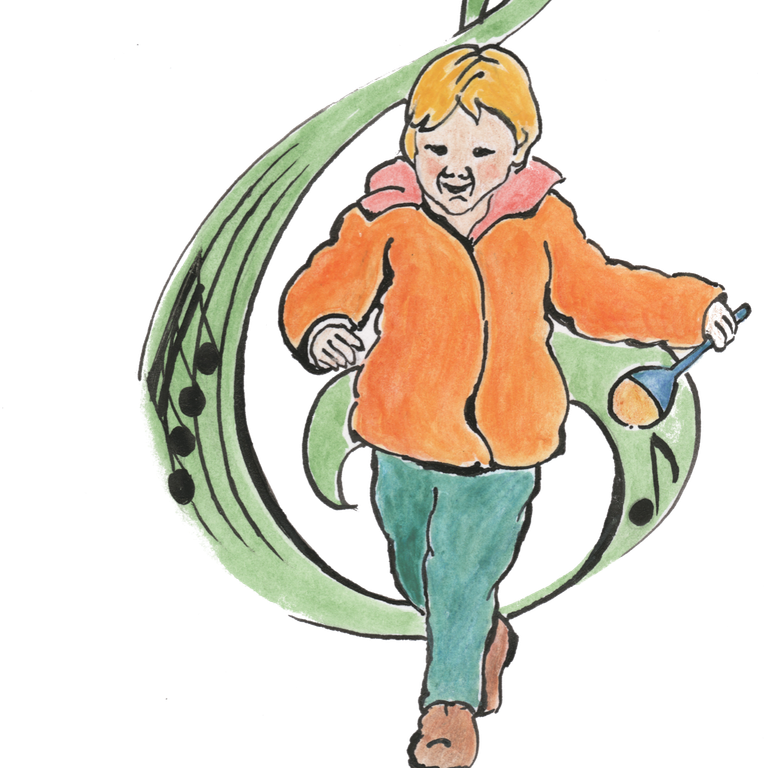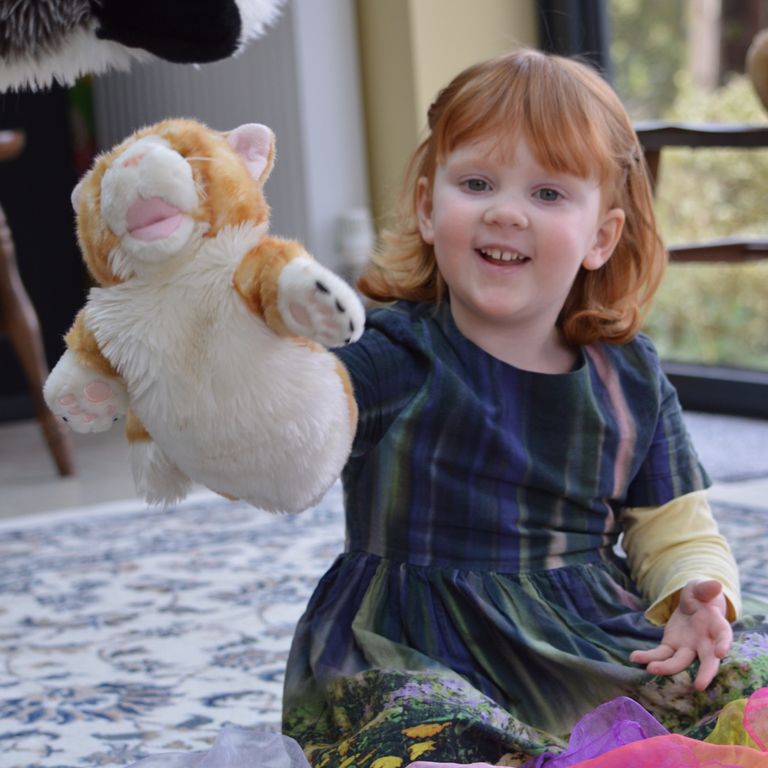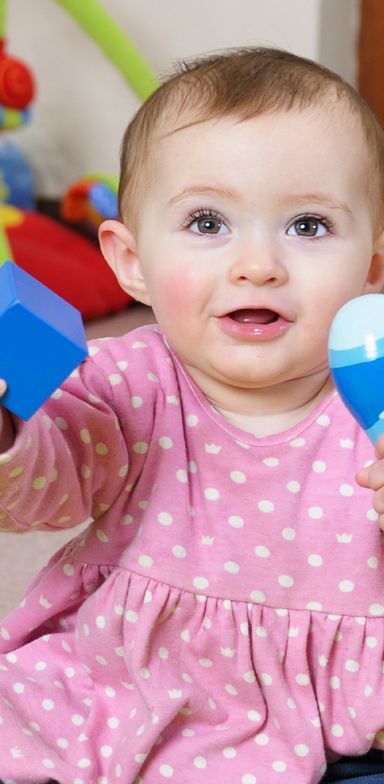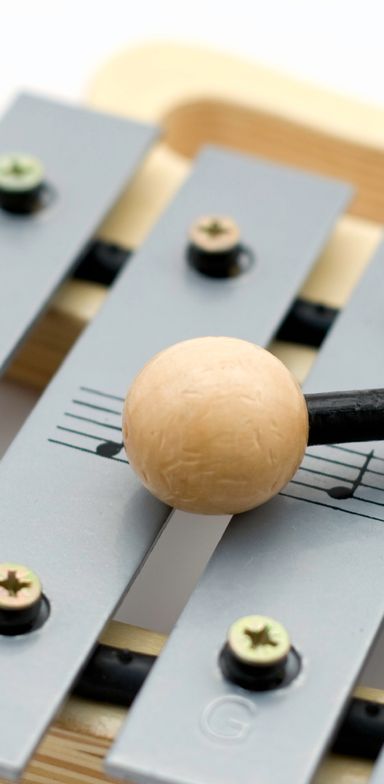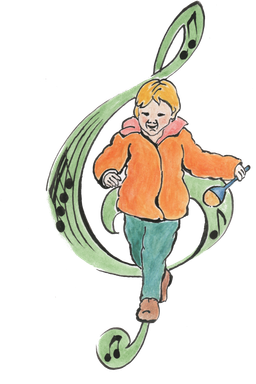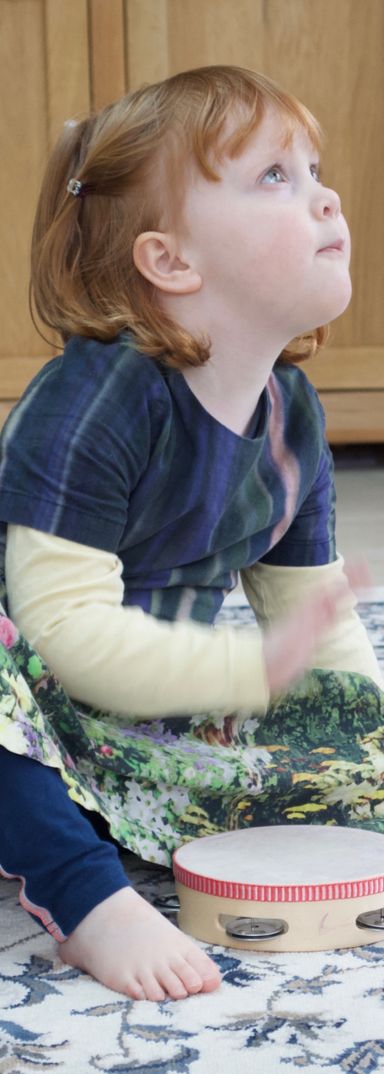
"With music, one's whole future life is brightened". (Zoltán Kodály)
Music Kindergartens
Our Music Kindergarten’s have small age-related groups where children built a solid musical foundation in a child centred and enjoyable way, using the principles of the composer/educator Zoltán Kodály (using DO-RE-Mi). The Kodály method is a model for music educators around the world producing fine musicians.
Children develop musical skills step-by-step: their senses of pulse (steady beat), tempo (fast/slow), rhythm (short/long), dynamics (loud/soft) and pitch (high/low) through a variety of musical activities, using singing, rhymes, games and dance with the voice and percussion instruments, as well as listening as an activity in itself.
“Music education begins nine months before the birth of the child” (Zoltán Kodály).
The earlier a child starts in the Music Kindergarten, the more profoundly music will be ingrained and musical skills will be developed.
Under -3’s attend with a parent or carer.
From the age of 5, 6 or 7 most children will be able to start playing an instrument, if desired.
What happens in class?
In the years up to age three, a parent or carer attends with the child to assist in the activities. Basic music concepts are introduced in a fun and accessible way, encouraging interaction through the use of rhymes, finger games, songs and movement. Musical concepts like fast/slow, short/long, loud/soft, high/low and listening are all developed through a variety of musical activities.
From 3 years, the children work with the teacher and develop and refine musical concepts. Skills will be introduced in an enjoyable way and presented within the framework of age appropriate games. Rhythm names are introduced (TA, TI-TI). Children will be encouraged to sing solo and in two-parts, using rhythmic ostinatos and percussion instruments.
At 4-5 years, musical concepts will become conscious. Children will start using solfège (DO-RE-MI) with hand signs and start to read using stick notation. There will be more two- part singing.
At 5-6 years, children continue to develop and refine musical skills. Notation and reading will be more complex.Movement and games will continue to be an important part in these classes.
Why?
To develop musical skills - beat, rhythm, pitch.
To stimulate intellectual development – language, memory, structured thinking.
To develop listening skills - a child who can listen is a child who will learn more easily.
To improve Co-ordination – gross and fine movements.
To motivate Social skills – playing games, working together with teachers and parents.
To appreciate the enjoyment of music!
Singing Rascals
The songs that make up the core repertoire of the classes are published in three Colourstrings books called Singing Rascals. Although not obligatory, these little books are a good (and modest) investment. Children love reading the books at home and singing the songs of their favourite drawings, cd’s with the songs are also available. More information on this and where to purchase will follow during the classes. The little rascals songs that the children will learn during their stay at Music Kindergarten form the base of the instrumental Colourstrings books.
EARLY BONDING
LANGUAGE
EMOTIONAL INTELLIGENCE
NUMERACY
SOCIAL SKILLS
PHYSICAL CO-ORDINATION
We need your consent to load the translations
We use a third-party service to translate the website content that may collect data about your activity. Please review the details in the privacy policy and accept the service to view the translations.
